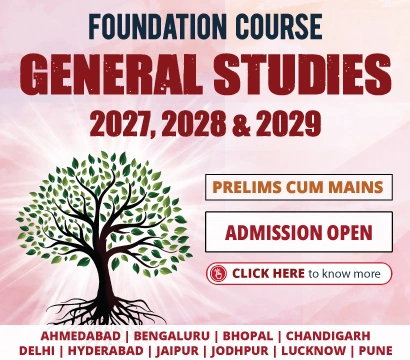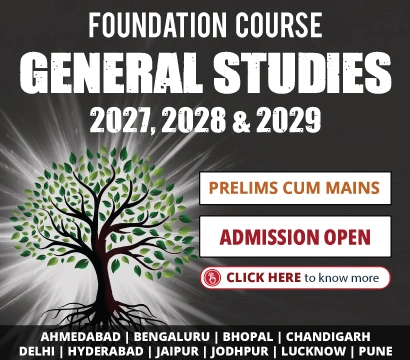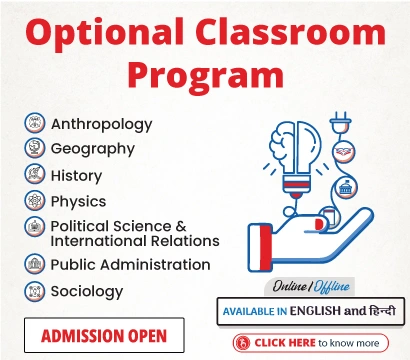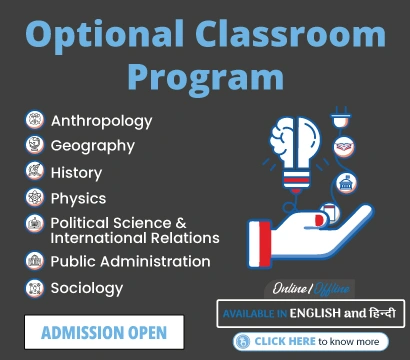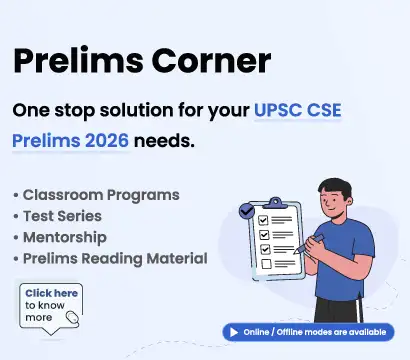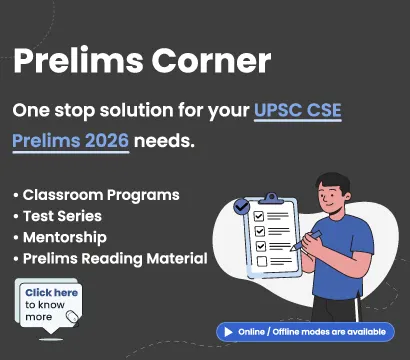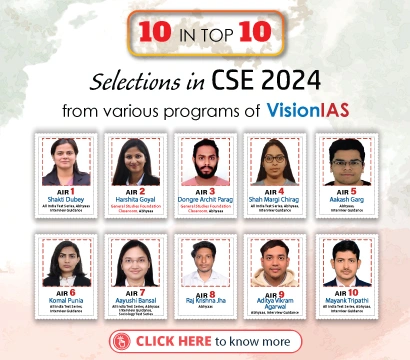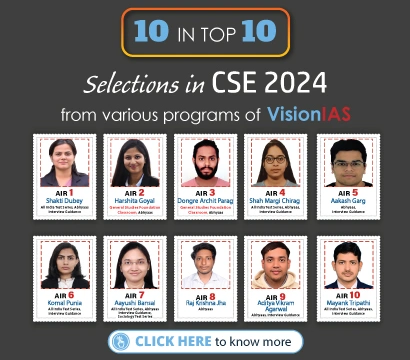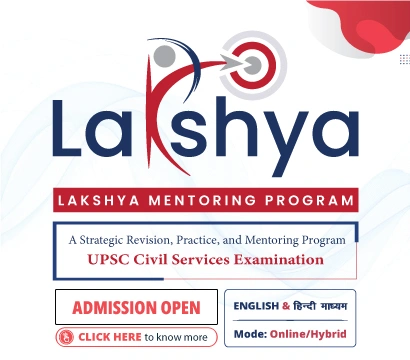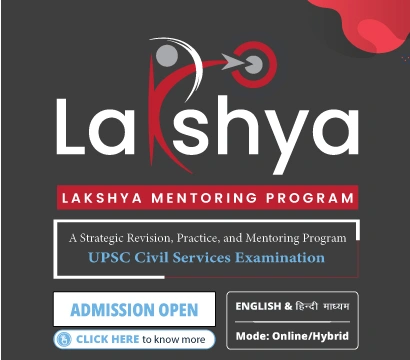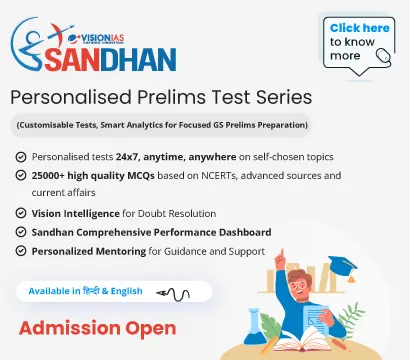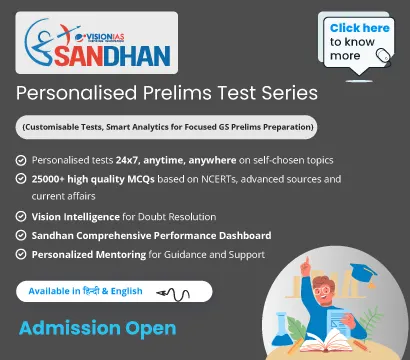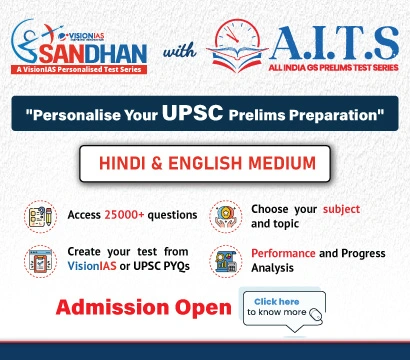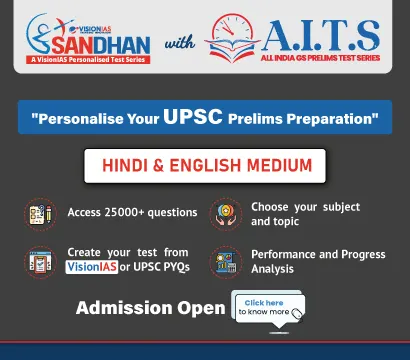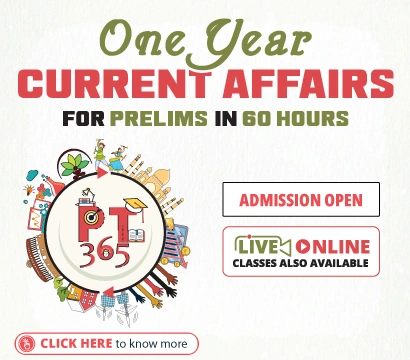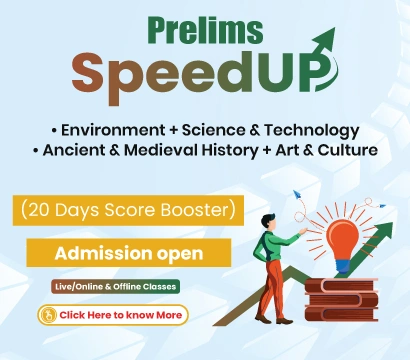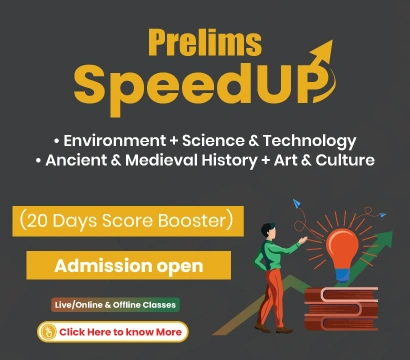Mains
UPSC Mains 2025: Download GS and Essay Paper PDF & In-Depth Analysis
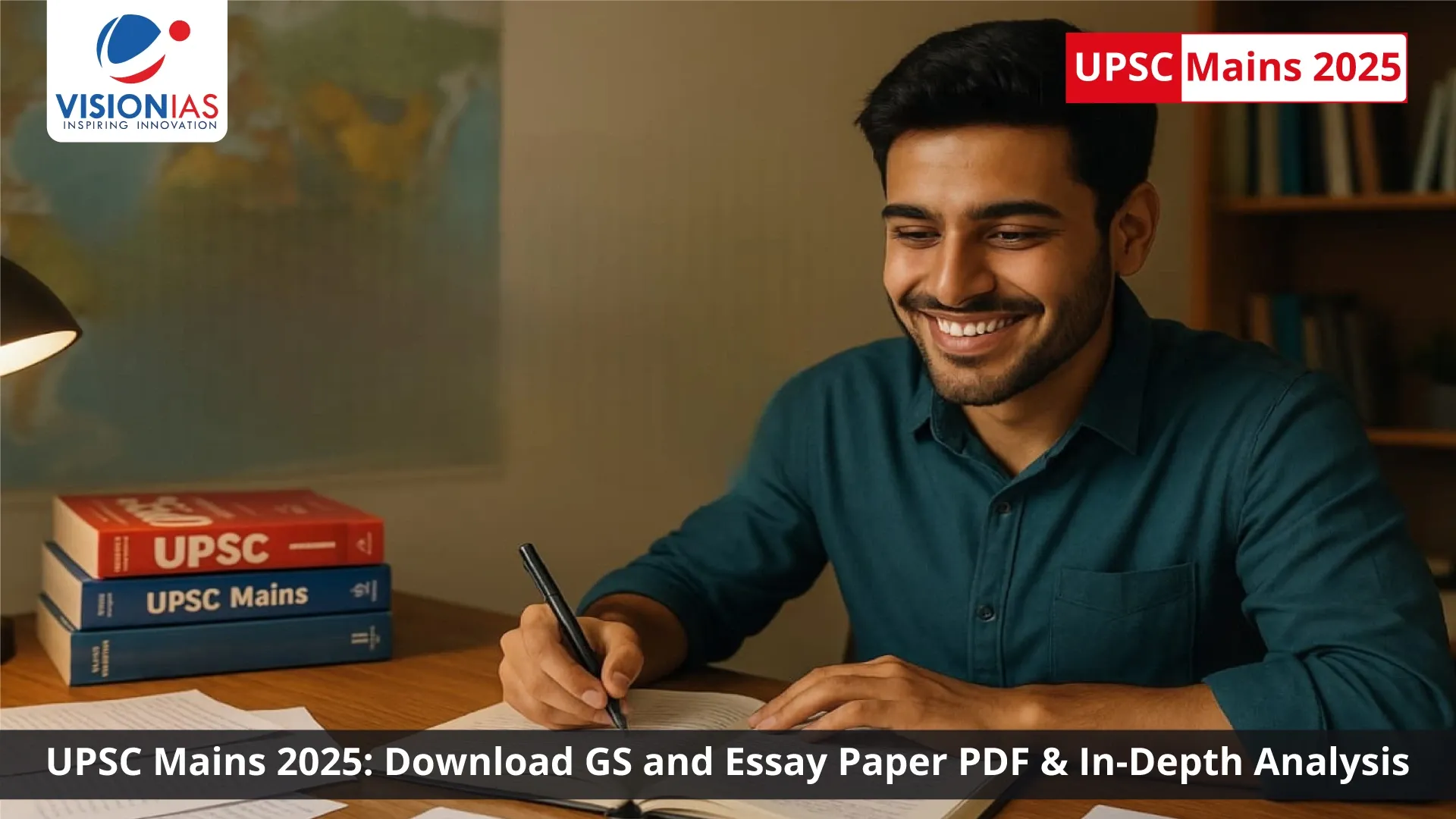
The UPSC Mains 2025 marks a crucial milestone in the Civil Services Examination. Among all the papers, the essay paper for UPSC continues to be one of the most scoring, demanding not just knowledge but also structured thinking, analytical clarity, and creative expression. Likewise, the GS papers test aspirants on a wide array of themes that demand depth and relevance.
This blog presents a consolidated section to download the GS and Essay paper PDFs, along with detailed trend analysis from previous years to help aspirants understand evolving demands and how to approach them effectively.
Download UPSC Mains 2025 Essay and GS Papers PDF
The UPSC Mains 2025 examination is scheduled to commence from 22nd August 2025. Once the exam is conducted, the official question papers for the Essay and General Studies (GS) Papers will be available here for download. These papers will help aspirants in post-exam analysis, structured revision, and answer writing practice based on actual exam trends.
? Download Essay Paper – UPSC Mains 2025 (Link will be updated here once released) ? Download GS Paper 1 – UPSC Mains 2025 (Links will be updated here once released)
? Download GS Paper 2 – UPSC Mains 2025 (Links will be updated here once released)
? Download GS Paper 3 – UPSC Mains 2025 (Links will be updated here once released)
? Download GS Paper 4 (Ethics) – UPSC Mains 2025 (Links will be updated here once released)
For the complete upsc syllabus mains and PDF breakdown, you can refer to the official syllabus of UPSC PDF page.
Essay Paper Pattern – UPSC Mains 2025
The essay paper for UPSC continues to follow the traditional format:
- Two sections: Section A and Section B
- Each section contains 4 topics
- One topic to be chosen from each section
- Each essay carries 125 marks
- Total Marks: 250
- Word Limit: Around 1000–1200 words per essay
Essays typically range across philosophical quotes, issue-based topics, and contemporary themes requiring value-laden analysis and interdisciplinary linkages.
GS Papers Overview – UPSC Mains 2025
There are 4 General Studies (GS) papers in the UPSC Mains 2025. Each paper carries 250 marks. Together, they evaluate an aspirant’s conceptual understanding, analytical skills, and ability to interconnect subjects.
Answer writing involves:
- 150 words for 10-marker questions
- 250 words for 15-marker questions
For detailed syllabus reference, download the syllabus of upsc PDF from the official site or refer to the VisionIAS blog section.
Continuity and Change: Essay Trend Analysis from 2022 to 2025
Over the past few years, the essay paper for UPSC has shown a consistent pattern of integrating both philosophical reflections and issue-based themes. The paper typically assesses an aspirant’s ability to connect abstract ideas with real-world contexts while demonstrating clarity of thought and value-oriented reasoning.
The table below outlines the trend observed from 2022 to 2024, offering insights into the evolving nature of essay topics. The 2025 paper trends will be updated post examination.
GS Section-Wise In-depth Analysis of UPSC Mains 2025 Papers
To be updated post exam.A complete breakdown of topic-wise questions and analytical overview for both essay paper and GS Papers will be provided once the official papers are released.
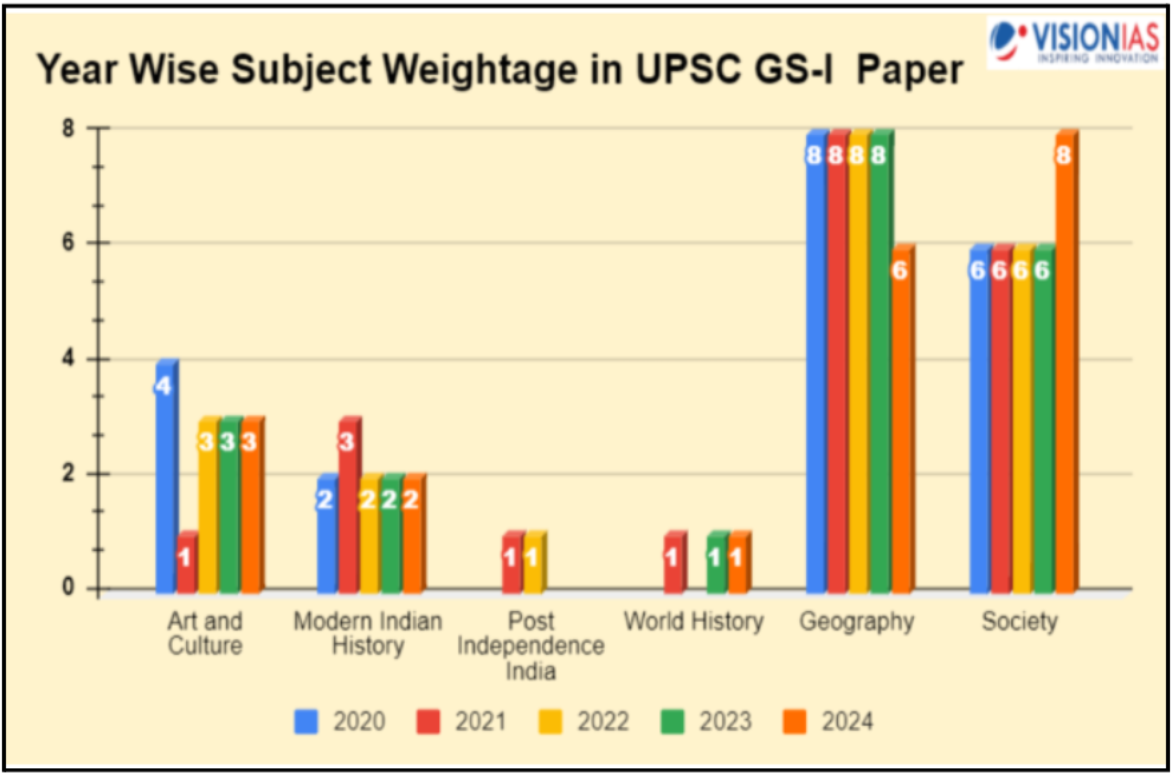
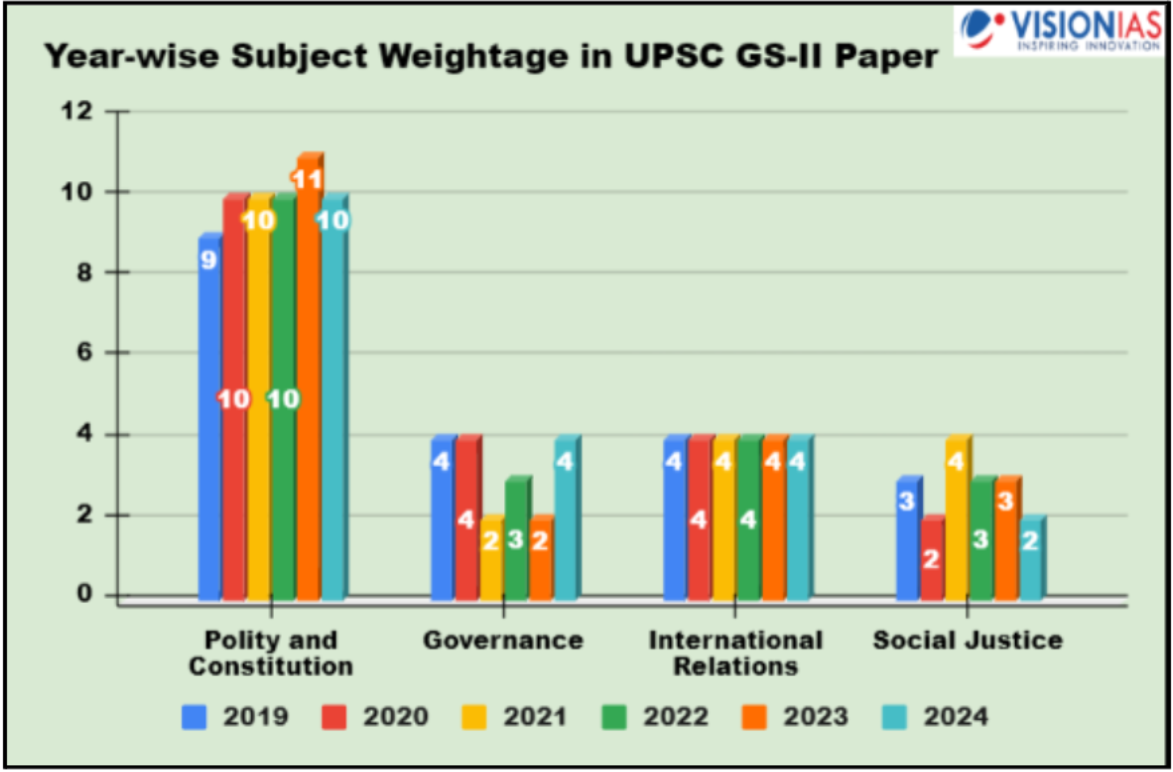
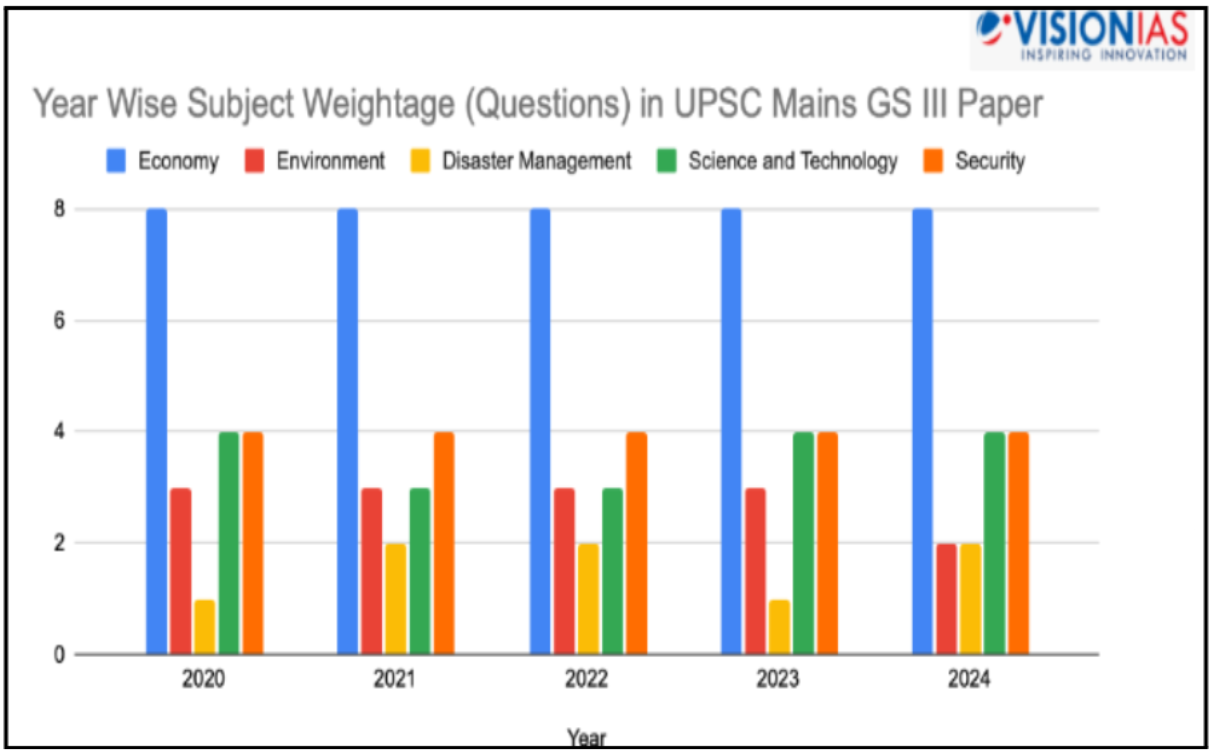
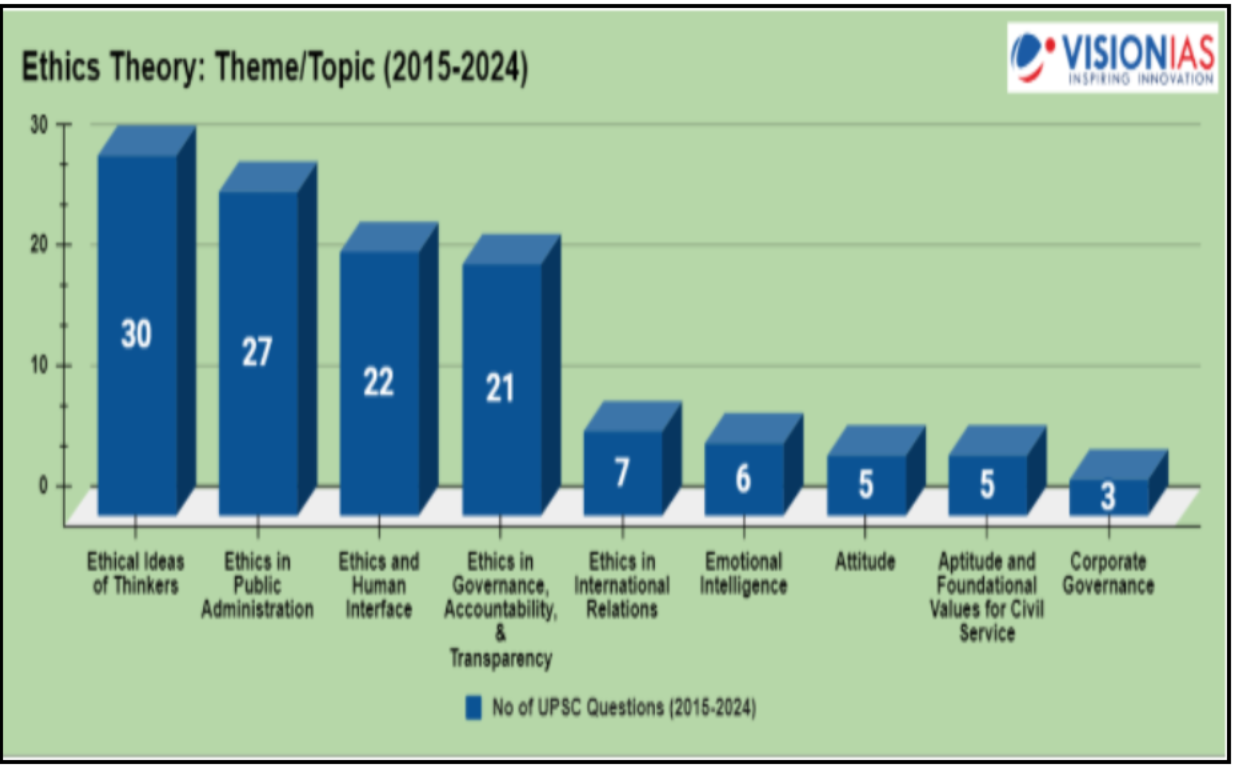
Also Read,
UPSC Mains 2024 GS Paper 1: PYQ Analysis, Strategy & Syllabus Insights with VisionIAS
UPSC Mains 2024 GS Paper 3: Key Trends, Strategy, and Syllabus Insights for Preparation
UPSC Mains 2024 GS Paper 4 (Ethics): Key Trends, Strategy & Syllabus Insights
Strategic Takeaways for 2026 Aspirants
- Expand Knowledge Sensibly: Focus on building an integrated understanding across GS subjects. Go beyond surface knowledge—develop conceptual clarity and awareness of how topics evolve.
- Prioritize Conceptual Clarity Over Rote Learning: Understand the ‘why’ and ‘how’ behind facts and events. GS answers are often rewarded for subtle interpretation and logical reasoning.
- Strengthen Analytical Thinking: Develop the ability to assess issues from multiple dimensions. For instance, when tackling themes like globalization or gender issues, present varied perspectives with relevant examples. Here, VisionIAS Value Addition Material, serve as a one-stop solution for comprehensive and smart exam preparation
- Link Static Syllabus with Current Affairs: Use updated resources such as Mains 365, Monthly Magazine, and daily News Today to stay aligned with real-time developments. These connections bring depth and relevance, especially in society and geography.
- Practice Regularly with Structured Guidance: Enroll in answer writing programs and test series that mirror the UPSC pattern. Initiatives like All India Test Series, Lakshya, and Daksha help you receive timely feedback and refine your answer articulation.
- Learn from Past Year Trends: Analyze previous year UPSC questions to identify core recurring themes and align your preparation accordingly.
Register for GS Foundation Course
The UPSC Mains examination is not just a test of knowledge, but a rigorous evaluation of your clarity, coherence, and ability to reflect and respond within a structured framework. With increasing emphasis on analytical depth, ethical reasoning, and contemporary relevance, aspirants must evolve from rote learners to strategic thinkers.
Use the GS and Essay papers for reverse planning, enrichment, and benchmarking. Stay updated with current affairs, continue practicing with discipline, and align your preparation with evolving UPSC standards.






























